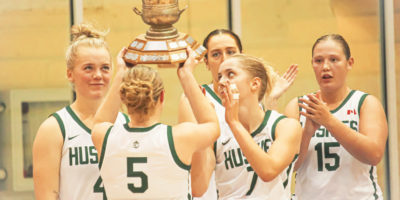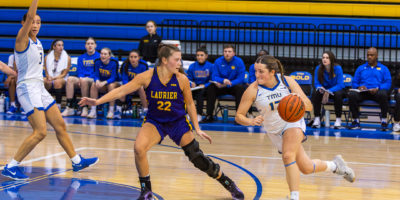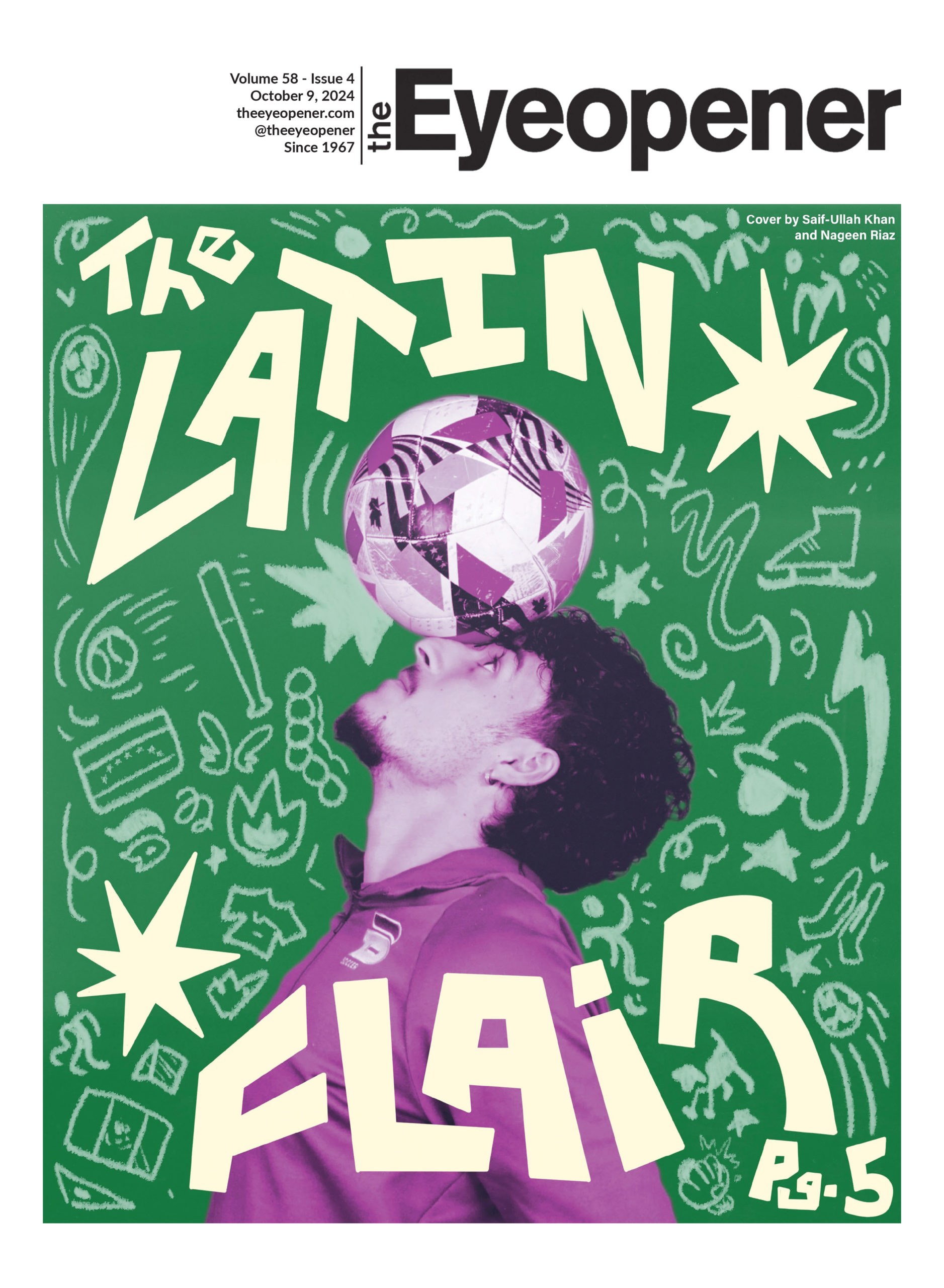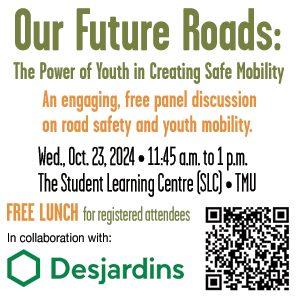By Emily Craig-Evans
Ryerson grad Maayan Ziv’s friends moved four garbage cans out of an alley way, kicked aside debris and pried open a heavy gate so that Ziv could access Lou Dawgs’ back patio in her power chair last September.
It was her first week in Ryerson’s master of digital media program and she was determined to meet with the rest of her class who had gathered there. They came out to join her on the patio because there was no way she was going to get into the bar.
She wasn’t prepared for the obstacles she faced and couldn’t be certain before arriving that she would be able to join her class at all, because that accessibility information wasn’t out there.
“There’s apps for everything but there weren’t any tools that could help me with this,” said Ziv. This gave her an idea.
With the help of classmate Natali Osadchin in the ideation phase and Tel Aviv based start-up Mapme for site-building, Ziv designed Access Now, a web-based application that maps crowd-sourced accessibility information. It launched in August and Ryerson’s DMZ, a digital media start-up incubator, accepted Access Now into their zone Oct. 8.
Users can search a global map interface for detailed information about the level of accessibility of more than 1200 spaces, or they can add their own information about a new location. Information includes details about width of spaces and ramps, stairs, door openers, washrooms, and elevators.
Ziv has chosen not to participate in social outings in the past because she didn’t know what she would find when she arrived. She hopes Access Now can nourish social lives and empower people to make informed decisions before navigating the types of obstacles she faced at Lou Dawg’s, or worse, traveling to a space to discover that it’s not accessible to them at all.
She teared up when one user who faces mobility obstacles reached out to her by email to let her know that thanks to Access Now, he was able to quickly find a place to get pizza in Kensington Market.
But the information isn’t just useful to those with permanent disabilities.
“Although some people might not think accessibility touches their life, it does, it touches everyone,” said Ziv.
Access Now could also be useful for event planners who care about inclusivity, the elderly who have trouble with stairs, or individuals with injuries.
Ziv also hopes that the breadth of information will expand to address needs across a spectrum of disabilities, beyond mobility issues. This could include information about locations with braille for those with visual impairments, or noise levels for individuals with autism.
Most entries currently centre around southern Ontario, but have popped up as far as San Francisco, Dominican Republic and Israel.
Ziv hopes users will embrace Access Now as a community place to share traveling tips and anecdotal information about places they have been as it relates to accessibility. Users can also provide information about how inaccessible a space is, but Ziv says the goal is not to shame individuals for operating inaccessible spaces.
“As a business owner, you’re in it to make money. By not being accessible, you’re missing out on a large customer segment” Ziv said.There are 2.5 million Canadians living with mobility related disabilities alone.
Ziv plans to go on multiple outings next spring with groups of people to explore Toronto, assess accessibility and add as many pins to the map in one day as they can.
As Access Now moves forward with the DMZ, Ziv hopes to develop a downloadable mobile version, and explore monetization options.
“Saying you oppress me creates otherness,” Ziv said. She’s more interested in creating community conversations oriented around education and working together towards inclusivity.










Joe
Where can i get this app?